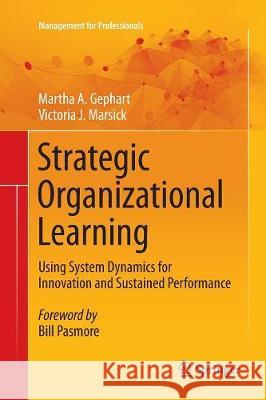Strategic Organizational Learning: Using System Dynamics for Innovation and Sustained Performance » książka
topmenu
Strategic Organizational Learning: Using System Dynamics for Innovation and Sustained Performance
ISBN-13: 9783662569450 / Angielski / Miękka / 2019 / 176 str.
Kategorie:
Kategorie BISAC:
Wydawca:
Springer
Seria wydawnicza:
Język:
Angielski
ISBN-13:
9783662569450
Rok wydania:
2019
Wydanie:
Softcover Repri
Ilość stron:
176
Waga:
0.28 kg
Wymiary:
23.39 x 15.6 x 1.07
Oprawa:
Miękka
Wolumenów:
01
Dodatkowe informacje:
Wydanie ilustrowane











